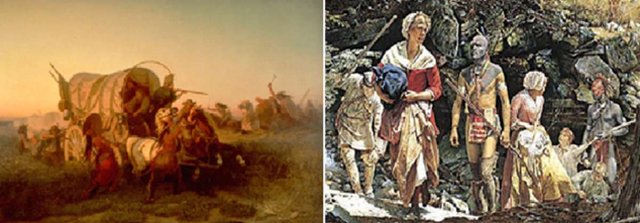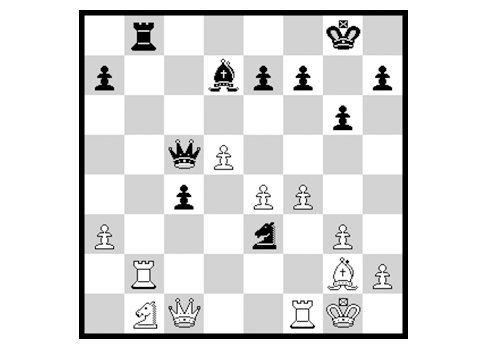
To escape the misery and religious persecution in Europe, a couple of Irish and Scottish, took a ship that threatened to be shipwrecked with each wave, and that took them to North America. It was the eighteenth century. And in the middle of the sea the woman gave birth to a girl who had no homeland. Her newborn crying pleased those present. Even if she had known what she was going to live, she would have cried even more. There was no priest on board, but someone named her Mary Jamison.
After arriving on the mainland, twelve years later, the couple threw themselves in a cart, with all their children, to the conquest of the West, where the gold gushed, the land was infinite and, according to them, had no owners . But they did. There were hundreds of indigenous tribes that tried to preserve what had belonged to them forever. Among them, the Seneca. And with them was the encounter.
One morning, in that route of more than 4,000 kilometers, they were attacked. The family was captured and tied up. The mother expected the worst but saw with surprise a native who took off his moccasins and put them on his twelve-year-old daughter Mary. That meant the girl was going to walk, they were not going to kill her. At the last moment, he said: "Do not try to flee because they will kill you. Never forget your language, nor the name of your brothers, nor your father's or mine's. Goodbye!" They did not meet again.
A few days later, Mary was handed over to another indigenous family who had lost one of their children in the struggle against whites. As revenge, they could torture her and kill her, or they could adopt her. They chose to make her their daughter, replacing the dead son.
Mary became Seneca, married an Indian, had a son, and the group confronted whites who wanted to free her. Her husband died in combat, and Mary fled with her little one so as not to return to the whites, whom he felt as foreign invaders. In a second marriage, with an Indian chief, Mary had seven more children. At that time the English army hired indigenous groups to fight against other indigenous rebels and paid with a pot and a knife for each scalp of the natives.
Mary fled with all her children, traveled hundreds of kilometers, and refused to return to the whites. It was a white one that was respected by the Senecas, and was the first to defend their rights. He died of more than 90 years and said: "I know both worlds. And I know that nobody can be happier than the Indians in times of peace. I prefer their world."
In chess, too, ladies usually have the last word.

I had never read such an excellent story.
Downvoting a post can decrease pending rewards and make it less visible. Common reasons:
Submit